Understanding time Worksheets for Ages 3-6
5 filtered results
-
From - To
Unlock the magic of time with our "Understanding Time Worksheets for Ages 3-6." These engaging, age-appropriate printables help young learners master concepts of time, from telling hours and minutes to understanding daily routines. Perfect for preschoolers and kindergarteners, each worksheet is designed to make learning fun and interactive. By incorporating colorful visuals and simple exercises, children can practice sequencing activities, discerning morning and evening, and even begin reading clocks. Join now to nurture early time-management skills, laying a foundation for lifelong learning. Explore our collection and make time-telling an enjoyable and accessible adventure for your little ones!


Years Worksheet
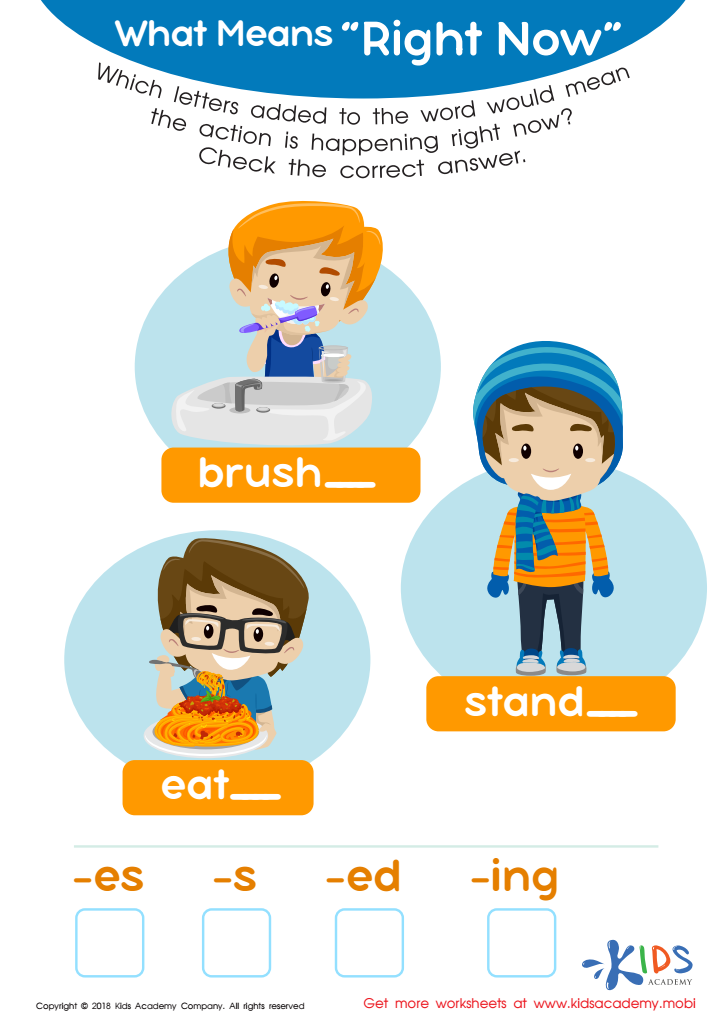

What Means "Right Now" Worksheet
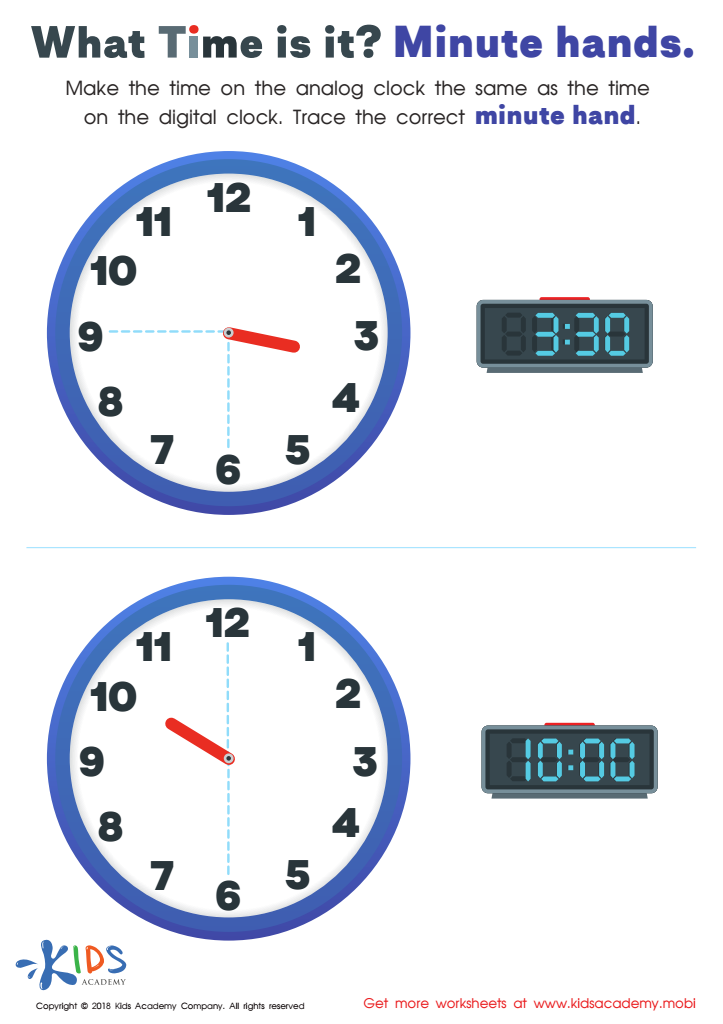

What Time Is it? Minute Hands Worksheet
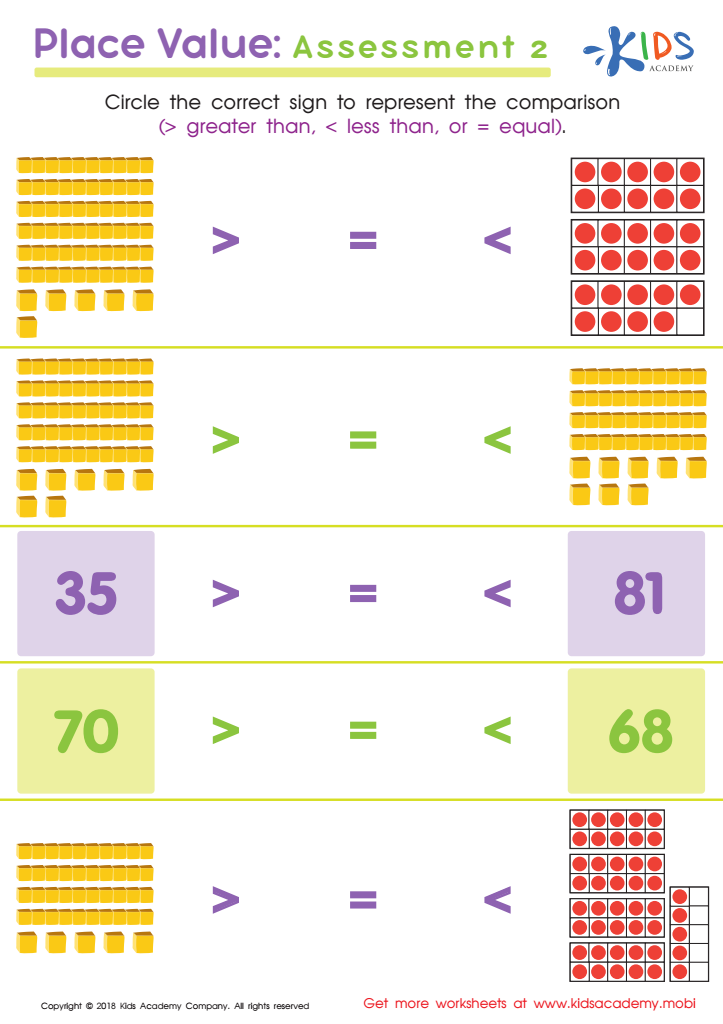

Place Value: Assessment 2 Worksheet
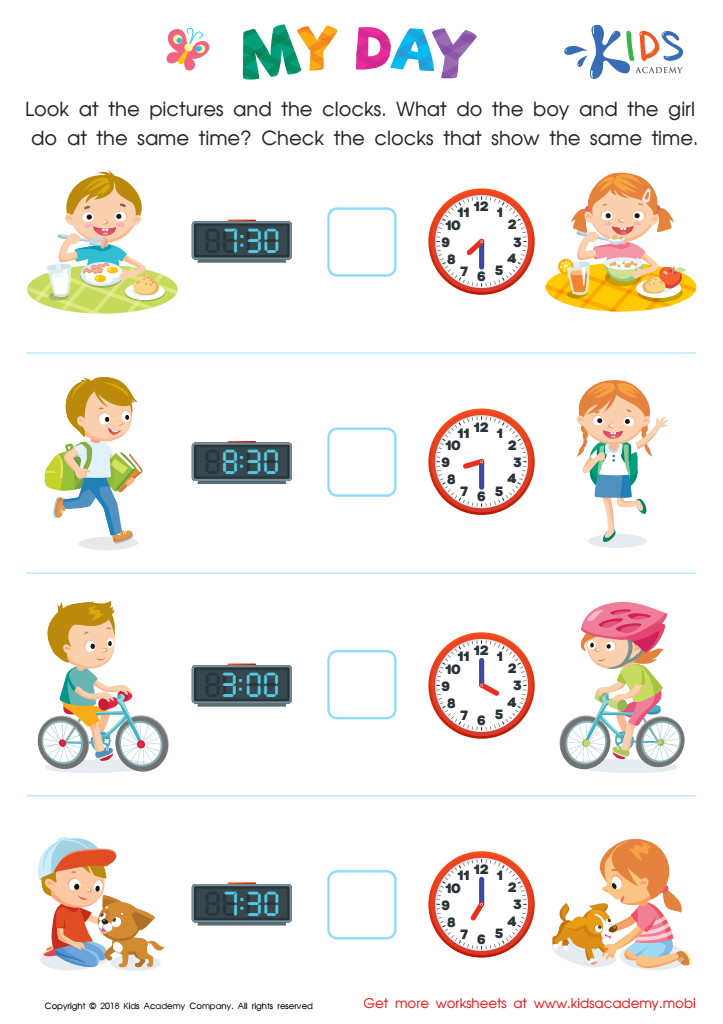

My Day Worksheet
Understanding time for children aged 3-6 is crucial as it lays the foundation for essential life skills. Parents and teachers should care about this developmental milestone because it promotes structure and a sense of predictability, which is comforting for young children. When children begin to grasp the concept of time, they can better understand daily routines, such as bedtime, mealtimes, and school schedules. This understanding helps them to feel more secure and in control of their environment.
Additionally, the concept of time fosters important cognitive skills. Learning about the sequence of events enhances their memory and comprehension abilities. It enables them to anticipate and prepare for what comes next, contributing to better decision-making and planning skills as they grow.
Socially and emotionally, understanding time helps children develop patience and the ability to wait for their turn. Also, discussing past and future events can improve language skills and provide opportunities for meaningful parent-child interactions.
For teachers, incorporating time-related activities into the curriculum can support the development of mathematical reasoning, such as counting and sequencing. By emphasizing the concept of time early on, parents and teachers help children build a crucial framework for personal responsibility, time management, and academic success in their future endeavors.

 Assign to the classroom
Assign to the classroom
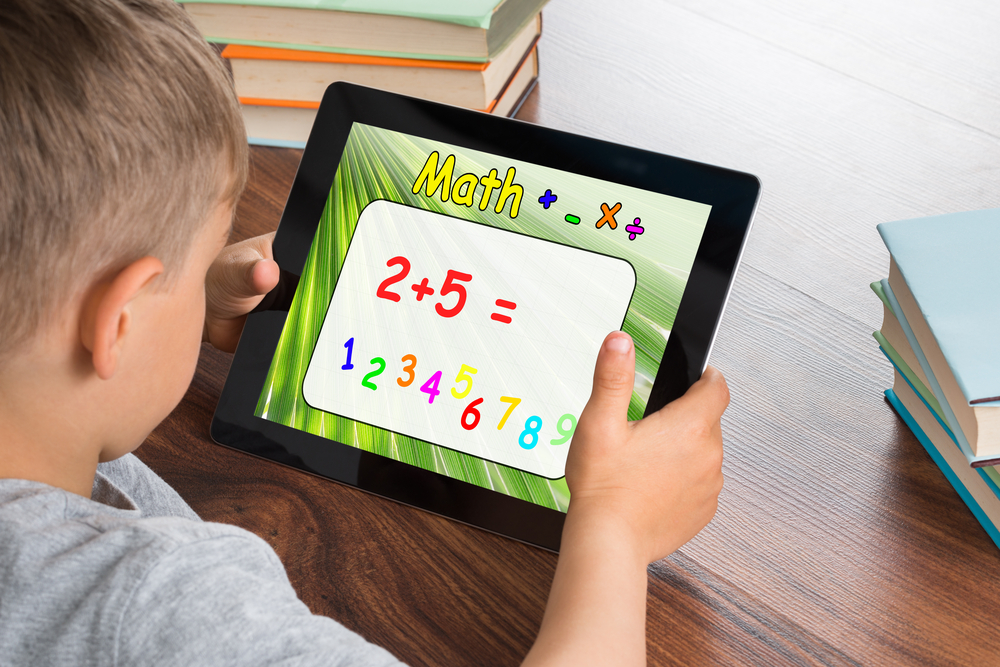

.jpg)








